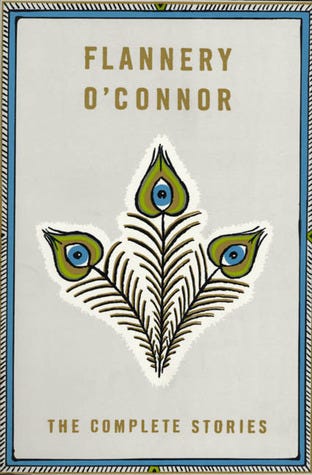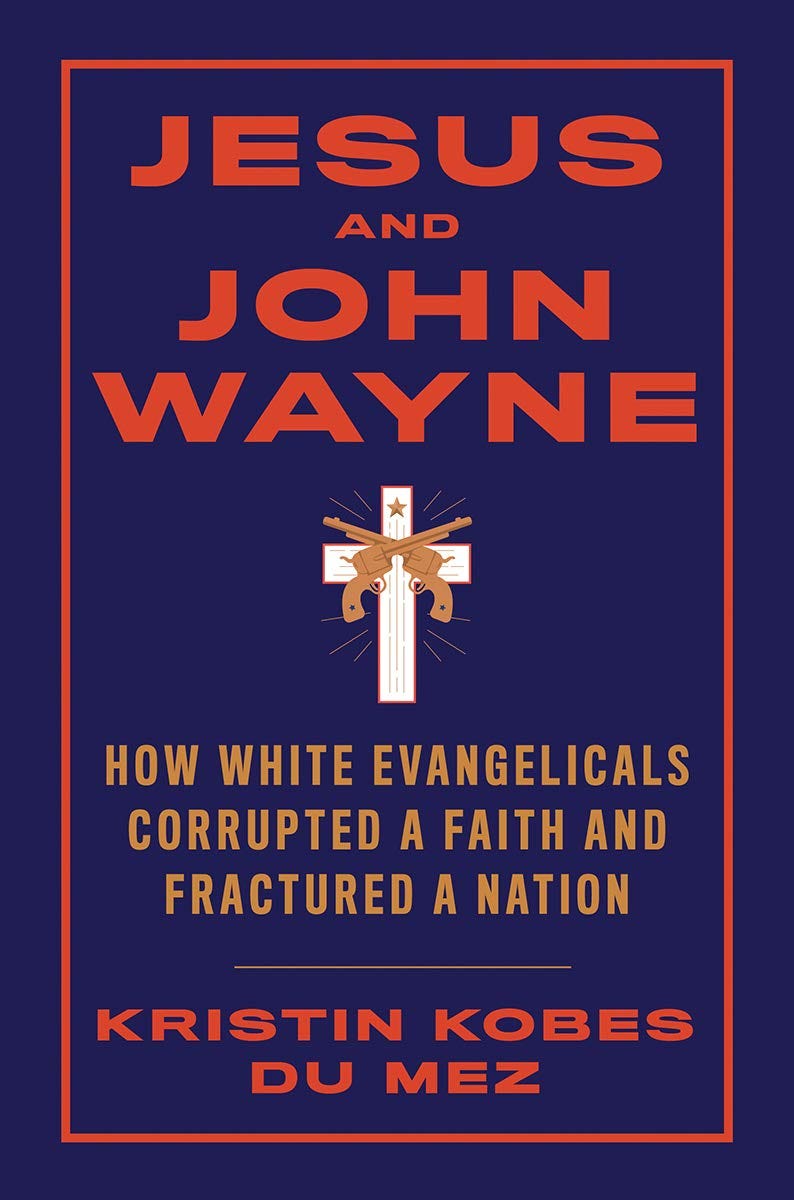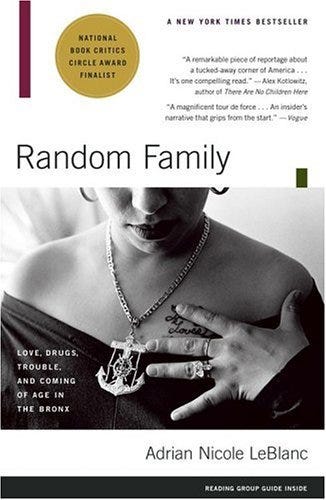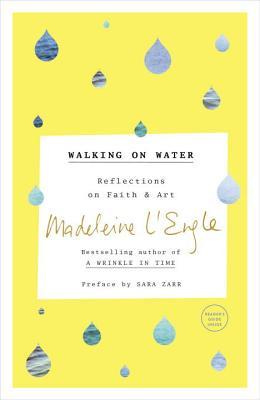
A few weeks ago, a friend said it would be interesting to start tracking the books that have changed and shaped you. As an avid journaler and list-maker, I love noting things I care about, so I immediately started putting together a list of titles that have most impacted me. It was harder than I thought it would be.
My "read" shelf on Goodreads has over 1100 books, and I didn't begin tracking there until around 2009, so I've read a lot more than that number throughout my life. Many books I've read have taught or challenged me, but I wanted a list of titles that have truly changed how I see the world. After much rumination that I probably took too seriously, I came up with seven titles.
Creating this list allowed me to reflect upon and appreciate great art, but it also reminded me how influential books can be. I disagree with book banners on almost everything but these truths: words are powerful and can help shape our lives. Here are a few of the books that have shaped mine.
My introduction to Flannery O'Connor happened as a college freshman. My English professor assigned "A Good Man Is Hard to Find." I read and liked it, though I knew I didn't understand everything that happened. O'Connor was doing something I didn't completely grasp, but I was intrigued.
A few years passed before I picked up The Complete Stories. I slowly savored the nearly 600 pages of O'Connor's work. I reread "A Good Man Is Hard to Find" and knew I'd learn something new with each reading. I fell in love with "Good Country People." I was impressed by O'Connor's humor and wit and surprised by her darkness. She could be hilarious, wise, sarcastic, and violent in the span of a few sentences. Her work reflects the world as it is with all of its contradictions and complexities.
I've never read another writer whose voice reminds me of O'Connor's. Her style and way of seeing the world belong to her alone. I'm thankful for what she taught me about the power of literature and how the best stories keep us coming back for second and third and twelfth readings. Her nonfiction has come to mean a great deal to me, too.
Homegoing is undoubtedly among the best and most important books released in the last decade. In a mere 305 pages, Yaa Gyasi tells a story that spans centuries. I knew about slavery before reading Homegoing, of course, but I don't think I fully understood the depths of its horrors. This book also showed me what generational trauma looks like. I'd heard that phrase before, but seeing it illustrated through Gyasi's fleshed-out characters was eye-opening.
Despite learning so much from Homegoing, it never feels didactic. Gyasi's prose is a pleasure to read. As soon as I read this book, I thought it should be required reading for teens. A few months ago, some English teachers I know reached out to me to ask my opinion on adding more diverse books to their curriculum, and I was able to recommend this one. Having a small hand in getting this book into more classrooms in my school district makes me incredibly proud and grateful.
When Donald Trump announced he was running for president, I laughed and was as entertained as everyone else. I didn't take him seriously and knew no one else would, either. I was surprised when he started gaining in the polls, shocked when he received the Republican nomination, and deeply saddened when he won. I love presidential history, and I knew he would make a mockery of the office he was about to inhabit.
What upset me more than anything else during Trump's rise to power was the reactions of evangelicals. I'm the daughter of a Southern Baptist pastor who's been in church her entire life. I was taught that God was good, that Jesus was tender and loving, and that Christianity was about the least of these. I couldn't understand why so many Christians I knew were treating Donald Trump as a Christian hero when his message and life reflected the opposite of Jesus's teachings. I was sickened by the Church's hypocrisy, and it caused me a great deal of grief.
Thankfully, Kristin Kobes Du Mez wrote Jesus and John Wayne, a book that helped me understand and process Donald Trump and the decades leading up to his chokehold on evangelicalism. Du Mez is a wise scholar who deftly explains how toxic masculinity and Christian nationalism have replaced the Gospel in the hearts of so many believers. I'm immensely grateful for this book and Du Mez's courage in writing it.
Everyone knew Chanel Miller's story before they knew her name. They learned about Brock Turner and the assault that changed Miller's life in articles and news blurbs as journalists dissected the crime. I knew these things, too, but after reading Know My Name, I learned what courage it takes to pursue justice in a world that often blames women for their own assaults.
Miller is a great writer who vulnerably shares her experience as Jane Doe. She writes candidly about the trauma she faced and how it resurfaced with each question, examination, and testimony. This book opened my eyes to the long and draining ordeal victims must endure to even hope for a chance at justice. Miller's strength is admirable, and her voice will help many women who have seen their abusers walk away with barely a hand slap.
Before I read Random Family, I thought I understood poverty, addiction, and crime, but this book showed me how they're inexorably linked. Overcoming poverty and being successful is part of the American dream. People say you'll achieve greatness if you just work hard enough. Through LeBlanc's reporting, I came to see that poverty often acts as a vacuum, sucking up anything that comes in its path and making it nearly impossible to get away. Random Family is an absorbing, powerful read that I'll never forget.
Few spiritual teachers have impacted my faith as much as Henri Nouwen. He writes with such tenderness and vulnerability, revealing his own doubts, flaws, and wounds as he explains how deeply God loves His children. In this book about the famous parable, Nouwen examines the sons, but his ultimate conclusion is that Christians are to be the father, opening up our arms to those who come home to rest in love and forgiveness. As an enneagram one who struggles with perfectionism, this book reminds me that grace runs deeper than any failure and that there's always hope for restoration and reconciliation.
I went to St. Louis on vacation with my family when I was around eight. I begged them to go to an art museum there, and they did. I don't remember much about it, but I remember feeling seen and heard. No one else was interested in the art museum, but they still went for my sake. I couldn't believe I was getting to see real art up close.
Art has been important to me for as long as I can remember. Before I could articulate it, I knew beauty was vital to the human experience. Growing up Christian sometimes made me feel that the important thing was the message, not the actual art. Beauty and creation were just tools used to say what you wanted to say, not considered necessary in their own rights.
When I read Walking on Water, I felt seen and heard like I did when I went to the art museum. Madeleine L'Engle was talking about art and faith, and she knew what I suspected: good art matters. Beauty matters. I'd never heard art and faith spoken about with the same reverence, but L'Engle gave me that gift. I'm thankful I read this book as a young creative because it fueled me for the years to come.
I would love to hear from you in the comments. What books have shaped your life? What authors opened your eyes? I want to hear your stories. Thanks for reading mine!











I love this post. I really like the stories you shared with each post. I also love the idea of eight year old Andrea knowing she wanted to go see art. I am totally going to steal your idea on post sharing- I think I’ll use Cato though. 😂
It’s interesting/complicated to differentiate between favorite books and books that have shaped my life! Linda Holeman is one of my favorite authors and I’ve learned so much about everything (myself, family dynamics, history, other cultures, etc) by reading her books. Colum McCann’s “Let the Great World Spin” and “This Side of Brightness” were memorable. “A Woman is No Man” by Etaf Rum is probably the most impactful book I’ve ever read.